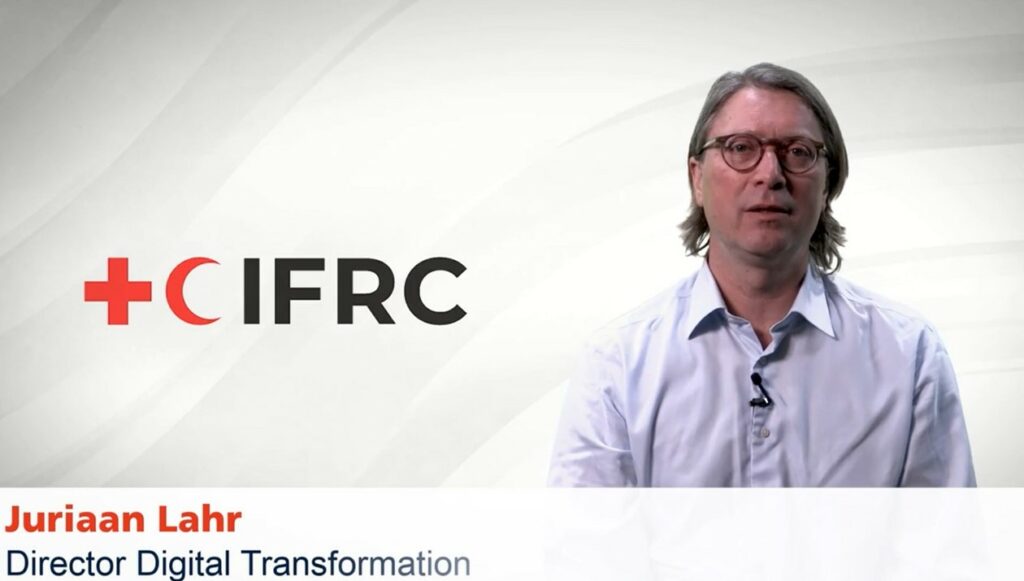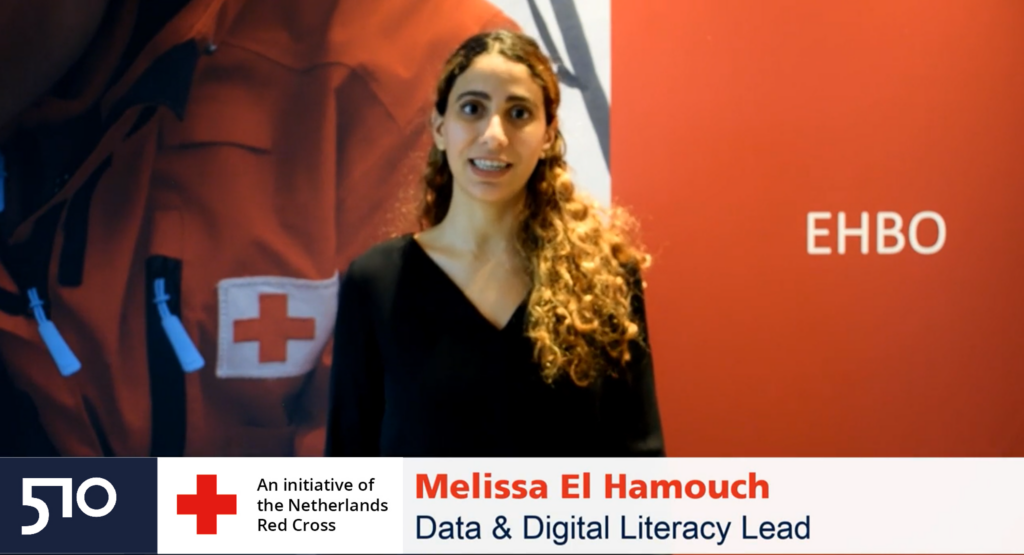The Data and Digital Literacy Introduction Course is now online! The e-learning course is intended for anyone interested in learning about data, information, digital technologies, and their responsible use within the context of humanitarian aid. The course content is offered in 5 standalone modules to flexibly cater to learners’ specific learning paths. We have used a mix of short videos, interactive content, visual examples, and quizzes to help participants have a good learning experience, thereby helping them to better internalize key terminology and concepts. After completing the course, participants will have a foundational understanding of Data and Digital literacy.
The course is available on IFRC’s e-learning platform: click here
The need for Data and Digital Literacy
The International Federation of the Red Cross and Red Crescent (IFRC) has embraced Digital Transformation as one of the key pillars of its Strategy 2030. Data and digital technology can help humanitarian aid providers serve those in need better, faster, and in a more cost-effective manner. However, when used irresponsibly, data and digital technology can also cause harm. The e-course supports the implementation of the strategy by building capacity. This course addresses specific skills and knowledge, needed among staff and (digital) volunteers in humanitarian work, known as data and digital literacy skills. Strengthening the literacy capacity is a starting point for many organizations in their Digital Transformation journey.
“The use of data and digital technologies is our strategy for 2030, in realizing a Digital Transformation” – Juriaan Lahr, Director of Digital Transformation at IFRC”
All individuals working in the Red Cross Red Crescent movement have dedicated time and talents to help in projects and programs; before, during, and after disasters. Many of the projects and programs are using, or are starting to use, data to better serve vulnerable communities. There needs to be a uniform understanding of what data and digital is and the role these play within an organization. To achieve that, an organization needs to build its data culture and improve the way staff and (digital) volunteers think about data and digital.

The development of the course
In 2020, the IFRC data literacy team, with support from 510 (an initiative of the Netherlands Red Cross) created and launched an e-learning Data Literacy Introduction course for Volunteers. The project had the financial support of the American Red Cross, and was under development for a total of six months. The content was derived from the IFRC Data Playbook and other Data Literacy materials. The course was targeted at volunteers and was not accessible through IFRC’s e-learning platform, therefore not reaching a wide variety of National Societies as was hoped. After discussions between (IFRC’s Knowledge Sharing Coordinator) and 510’s data literacy team, the new objective was to update the content of the course, increase its accessibility by adjusting its compatibility with the IFRC’s e-learning platform, and assuring that the content targets the Red Cross and Red Crescent’s staff and volunteers equally.
Once the content was finalized, the Escuela Internacional de Formación put this vision into reality, by transforming the content and instructions into an e-learning format. As a final step, in close collaboration with IFRC’s Instructional Design Team, the accessibility, look and feel of the course, and learner engagement were also reviewed.

The Data and Digital Literacy Introduction Course
Working with data requires specific skills and knowledge, also known as data and digital literacy skills. The newly updated Data and Digital Literacy Introduction Course is offered in English and Spanish and will enable participants to relate data and digital literacy terminology and methods to the responsible collection, analysis, visualization, and communication of humanitarian aid data.
The course is available on IFRC’s e-learning platform: click here (desktop/mobile)
After completing all 5 modules, a certificate is issued.
 Figure 1: Feedback from learners
Figure 1: Feedback from learners
After completing the course, please share your feedback through the online platform or by email to data.literacy@ifrc.org
510 contributors
The 510 team involved Joachim Ramakers, the data and digital responsibility expert, in aspects related to data and digital responsibility content and Melissa El Hamouch, the data and digital literacy lead, responsible for coordination and content approval. The team also collaborated with the consultant and longtime volunteer Kamal Ahmed, who helped with developing the content and the instructional design for this course.
Future developments
The team will be monitoring the data on the course enrollment, the general roles of the learners, and the completion rates. With these statistics, we can determine if the course is reaching staff and volunteers equally across a wide range of National Societies. With that, the data literacy team will be able to regularly monitor where learners are applying their skills and knowledge within their National Societies. This data will support tracking data and digital literacy initiatives as part of the Digital Transformation strategy.
The Data and Digital Literacy Introduction course is also available in Spanish.